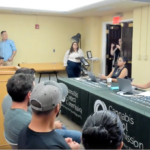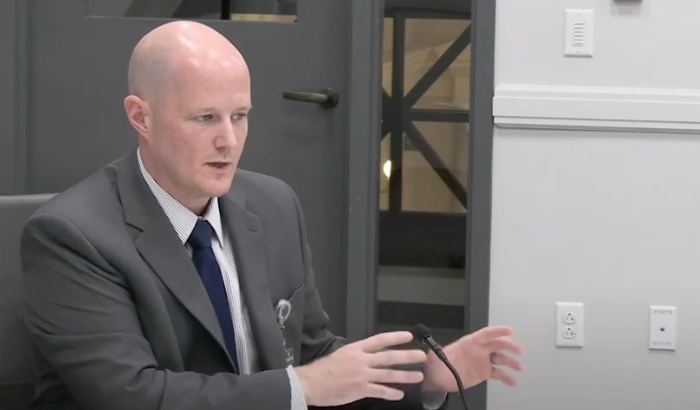
“We talked for years about what it would be like when all of us were up and running and we could deliver their products.”
Even before Rolling Releaf opened for business and delivered their first bag of weed on March 1, the company’s founders were already highly regarded—hell, you might even say revered—by cannabis industry peers and observers alike for the road that they took into business.
The attention didn’t stem from a social media stunt or some negative nonsense, but rather because co-founders Devin Alexander and Bryce Hall did more than merely obtain a license to operate like hundreds of other hardworking entrepreneurs in Mass looking to get in the green game. As Alexander explained to me in 2021:
“Everything I learned about delivery I had to teach it to myself. The initial delivery license that [Massachusetts] rolled out was delivery-only, and they had it so that you would have to contract with each dispensary, pick up their product already packaged, and anything you didn’t sell at the end of the day you had to give back to the dispensary. I didn’t see that as a feasible business model, so myself and a few applicants in the community created the Massachusetts Cannabis Association for Delivery.”
Delivery licenses are especially important, since they’re available exclusively for social equity applicants—people who have been directly impacted by or whose communities have been shaken from the War on Drugs—for the first three years. The association Hall and Alexander helped form yielded significant impact, forging changes that ultimately enabled delivery businesses like the Newton-based Rolling Releaf to finally open with promising prospects.
Looking back, Alexander says, “It took us three years to get to this point. There were a lot of roadblocks in the way and there were points in the process where we didn’t think we would get here. … In Massachusetts, delivery licenses are set exclusively for social equity applicants. We figured, after that window was over, what incentive would retailers have to keep the delivery company that they work with around? So we formed a new license that allows us to go directly to product manufacturers and cultivators and get wholesale that we can store in our facility overnight.”
“I remember when we first came up with the concept of challenging the courier model, people were laughing at us,” Hall adds. “They were saying that it wasn’t going to happen, but we stuck through it and kept fighting and really just leaned on each other for support. We were determined, we weren’t going to give up, no matter what.”
They both saw opportunity in the industry, and witnessed canna businesses in action early on. Alexander worked as a budtender at Ermont in Quincy (the shop recently acquired by MariMed and turned into Panacea Wellness). Hall, meanwhile, says, “Devin was the one who really inspired me to get into the industry,” and credits his own time working at Northeast Alternatives in Fall River with showing him what potential looks like.
“I was [working at NEA] when they were first coming online for recreational,” Hall adds, “and just seeing the behind the scenes of a cannabis startup really opened my eyes to the fact that you could do this and start a little bit smaller than you think and grow into a really sophisticated company. That really inspired me.”
In the waiting periods between getting their provisional license and receiving a blessing from the Cannabis Control Commission to commence operation, Hall and Alexander spent countless hours pre-sourcing, vetting companies they hoped to eventually do business with.
“It’s really what kept us sane through the whole licensing process,” Alexander says. Specifically, they look for “local,” which Rolling Releaf defines as having Massachusetts ownership. Furthermore, many of their partners “were fighting for the plant back before Question 4 passed in 2016 and before the Cannabis Control Commission was even an agency.”
“When you scroll through the Rolling Releaf [menu],” Alexander adds, “you’re supporting two small businesses with that purchase.” Asked to name-drop a few favorites, he highlights eighths from the Newburyport-grown RiverRun Gardens, Coast Cannabis edibles, and flower from Trade Roots in Wareham. The makers of the products they sell, Alexander continues, are “people who we’ve seen go through the process, who have given us advice, and who have had our back through it all. We talked for years about what it would be like when all of us were up and running at the same time and we could deliver their products, and now the day has finally come.”
The path ahead isn’t totally clear yet, and the Rolling Releaf founders are actively working with others in their license class to further reform laws around delivery. Problems that remain include a ban on all deliveries to non-residential addresses, as well a particularly costly requirement for two employees—a driver plus another person—to go out on the road together. Those are issues that they will address as advocates on Beacon Hill; in the meantime, they’re busy rolling relief to people around Boston and nine other cities in the region.
“It’s still surreal,” Hall says. “Now that we’re open the first half of the battle is done. The second half of the battle is continuing operation.”
























